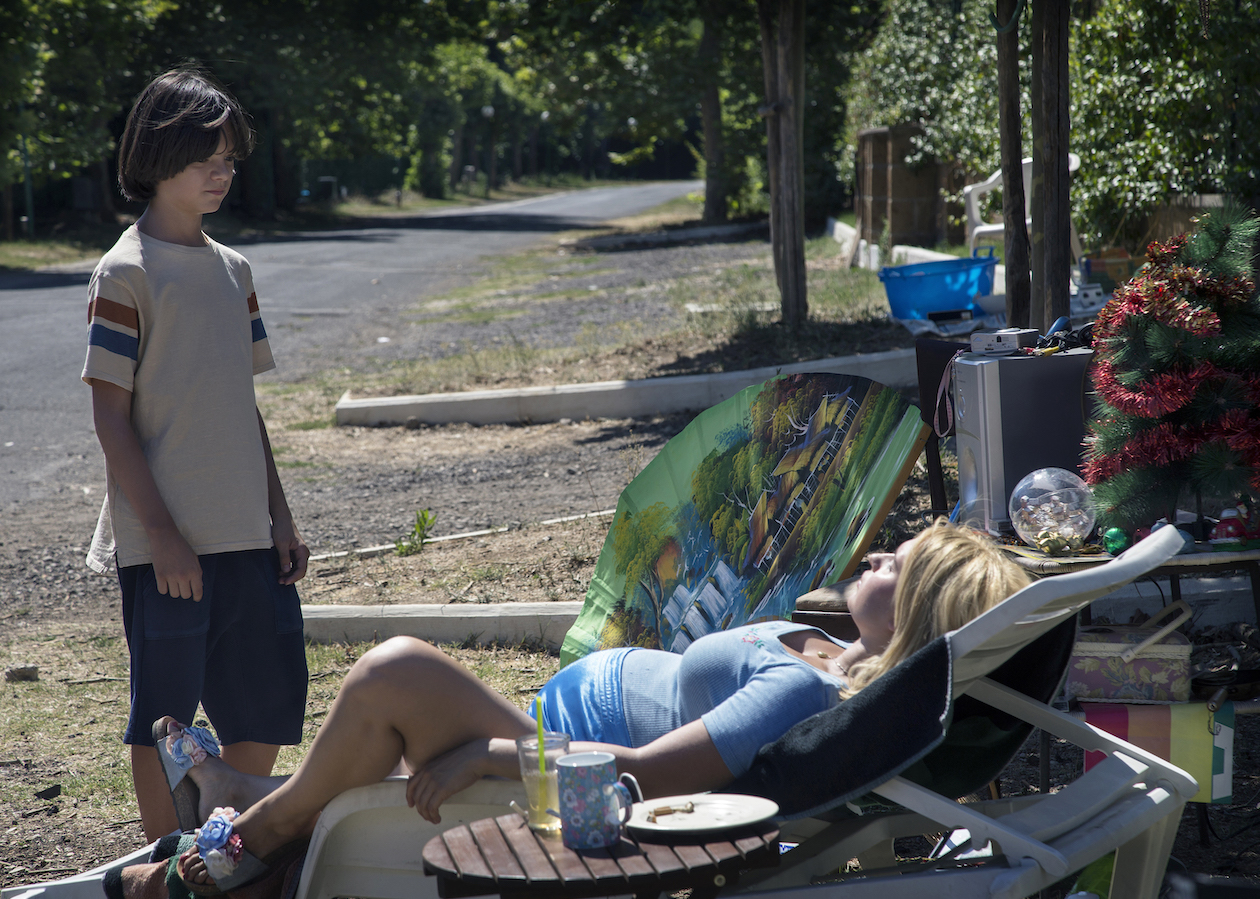The D'Innocenzo brothers' Bad Tales feels like a late Italian contribution to that run of lofty, varyingly misanthropic Little Boxes movies that emerged from the US in the late Nineties wake of Welcome to the Dollhouse (the indie variant) and American Beauty (the studio awards shot), films that insisted the suburbs are a strange and stifling place indeed. (Bonus points if you remember The Chumscrubber, which may still be the starriest title ever to take less than £50 on its opening weekend at the UK box office.) The D'Innocenzos took home the Best Screenplay gong at last year's Berlin festival, and I'll concede that Bad Tales demonstrates a certain skill in piecing together vignettes from a long, hot, fateful summer as experienced by the residents of one especially deadening dead-end on the outskirts of Rome. The grown-ups in situ are either corporate drones or aspirant corporate drones; the kids, being pushed through the social and academic cookie-cutter, seem bored out of their tiny minds. Whether or not this picture bears much relation to the actual suburbs - and the US movies didn't, unless you were neighbours with a closeted Nazi memorabilia collector, or happened to live between Ralph Fiennes and Glenn Close - it doesn't appear to be somewhere you'd go looking for great drama or trouble. But the D'Innocenzos persist, and turn up small flickers of discontent: an unemployed dad (Elio Germano) simmering with frustration both professional and sexual, a walking buzzcut (Max Malatesta) who regards even the neighbours he socialises with as leeches. The sunshine soon retreats behind brooding storm clouds. It's a pressure cooker, in other words: you can be fairly certain something regrettable will happen to justify the titular adjective.
Well-written, then, but Bad Tales has been written to lean in a certain direction, towards a worldview that struck at least this viewer as pretty jejune. (Let me put it like this: it's a worldview even Todd Solondz eventually outgrew.) The adults fall somewhere between the heavily accentuated and the outright grotesque: the heavily pregnant young woman who flops out a tit so as to expel milk on the cookies she's sharing with a young boy, the blue-collar meathead so pumped with testosterone he merrily jerks off in the garden and spends much of the movie training his terrified pipsqueak of a son to follow in his footsteps. This kind of thing has been endemic in Italian cinema, most recently in Matteo Garrone's weaker films: characters that aren't quite the full Fellini, which would at least imply a level of commitment (and might engender a sort of amazement), but instead shape up as dismal half-caricatures, born of authorial passive-aggression. They're straw men and women to be knocked around and have holes punched through the middle of them. A more specific problem here is the combination of these "characters" and the biding-time variety of plot. The D'Innocenzos are basically asking us to wait around in the company of individuals they themselves don't really want anything to do with, save to ensure that these figures of not-much-fun finally reap everything they've so grimly sown. I can see why Bad Tales might have played well among international film critics at a festival being held in a European capital. To anyone else, however, it will very likely have the look of a film made by city dwellers looking oh-so-snottily down on anyone who Isn't Like Them.
Bad Tales is now streaming via MUBI UK.

No comments:
Post a Comment